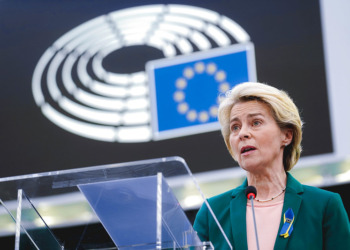I want to introduce a new patient-oriented theory of ethics generated because of my own dissatisfaction with some real-world situations lacking effective responses especially at social, political, and global levels.
The theory of Ethical-Possibility-Enhancement (EPE-theory) addresses these three:
1- To understand the root causes, systemic drivers, and any determinants of relative increases and decreases in one’s own well-being-span (long-term well-being) through sciences.
2- To identify the main challenges and opportunities for any individual constantly by updating based on evidence.
3- To find out, develop, and realize some concrete responses to such challenges and opportunities, and to advance systems, designs, and theoretical/conceptual tools for such responses as more effectively and reliably as possible again and again.
In other words, exploring and learning the main causal relationships based on sciences, and using such determinism (hard-enough determinism) in relation to any effects on us toward any increase in our own well-being-span.
As quality consideration-improvers having primary functions in understanding especially such main determinants and effects at least in my view: Steven Pinker’s work shows how global development (e.g., State-related developments, and increase in literacy globally) and social progress (e.g., advancements in public deliberation of rights) decrease interpersonal violence. Nicholas Christakis’s work shows how the well-being, health, and happiness of other persons in our social networks affect ours. Richard Thaler and Cass Sunstein’s work shows how sensible choice architecture and other nudging systems can successfully nudge people toward the best decisions for their health, wealth, and happiness. Robert H. Frank’s work shows how success “mostly” depends on “luck” especially due to current problematic-systems, and why it cannot be preferable, and what we can do about it. James Fallon’s work shows how nature and nurture influence our minds and behaviors (especially the criminal/violent ones). Itzhak Gilboa’s work shows how learning the decision theory can improve our decision-making capabilities in favor of our own well-being-span.
Adam Grant’s work shows how people can champion new and useful ideas, and fight “conformity-effects” that are mostly against our own well-being, and hence we can change the world in positive ways. Geoffrey Miller’s work shows how “sexual selection”, “equilibrium selections”, and any selection pressures shape our minds and behaviors, and we can change and use such selections for progress. Luciano Floridi’s work shows how we can design more effective systems that improve our well-being and don’t reduce our autonomy. And, Gregg Caruso’s work shows how our decisions and behaviors are determined by the factors outside our control. Also, “Our World In Data” publications show how “global living conditions” are changing, and by which we can further understand how concrete any progress is. Moreover, the United Nations, OECD, and Social Progress Imperative reports show how “evidence-based policy, human rights advancements, global development, and social progress” improve our health, prosperity, education, quality of life, longevity, peace, justice, freedoms, happiness, and planet in concrete and more effective ways globally.
As easily seen, the EPE-theory works with considering such a nonlinear causality and “probabilities of any effects on one’s own well-being-span”. According to it, without social progress (ensured well-being conditions, gender equality, human rights and freedoms, tolerant culture, and quality opportunities) in one’s own country and even globally, one is less able and (hence less likely) to act “ethically” and develop/facilitate more-ethical possibilities. So, the EPE-theory demystifies “the ethical” in terms of causation, and in such a sense, facilitates it, demonstrating that it’s about “causation, systems, and impact” instead of “virtues, virtue-signaling, heroes, self-sacrifice, blame, polarization, hypocrisy, and social-dominance-orientation”.
 PHOTO CREDIT: Pexels
PHOTO CREDIT: Pexels
What is at stake for an individual? Above, we mentioned it as “one’s own well-being-span possibilities”. But what is that exactly? In its broader meaning, it includes any that one loves, values, and benefits from, and any that one may love, value, and benefit from in the future. So, the stakes are too high and complex: Global development, social progress, and rights are at stake due to uncertainties of such interests in relation to others. Thus, others’s well-being, any sort of environment, and our planet are at stake because of their interdependence with one’s own well-being. So, in terms of ethical considerations, one must also try to improve their well-being-span and possibilities for her own greatest and ultimate real self-interests through deliberate investment/impact/help.
In this sense, let’s compare it with other ethical approaches:
1- Deontological/Kantian ethics (action-oriented: duty/intention/wish).
2- Virtue ethics (agent-oriented: habits/character).
3- Consequentialist ethics (outcome-based: pure results/data/utility).
4- EPE-theory (patient-oriented: effects/probabilities).
In other words, to me, what matters to decide/design/act is (must be) the probabilities of relevant effects on one’s own well-being-span. What is “ethical”, or more precisely (because there is no absolute but are always “relatively preferable alternatives/possibilities” that can be developed/realized), “what is More-Ethical” is “to receive particular effects, so try to increase those effects, ensure them, and continue to seek advancing those effects as much as possible”. So, how to receive, and hence, not act in terms of narrow-selfishness (which does not work for such advancements and cannot guarantee them in the long-term), develop concrete systems that work, and rights that can be possibly realized. Thus, it’s, for one’s own well-being, to develop/find out such patient-oriented patterns and ways that are concrete in order to be able to “receive” those particular effects. In short, it’s toward improving such passivities (receiving: patient-oriented expectations/realizations) through activities (developing systems, investments, individual efforts etc). As a result, it is to design and realize multiple systems, rights, and tools that serve one’s own and consequently anyone’s such receiving possibilities. It may involve reciprocity perspectives in many dynamics as useful mechanisms but is not based on them because its designs and systems do not require mutual give-and-take as a necessary condition/rule.
Further, I want to emphasize that if you don’t have sufficient facilitating quality opportunities, living conditions, and systemic options, then you are less able, and less likely to act toward “more-ethical” -receiving- possibilities. For being able to generate quality deliberation, forecasting, design, and decisions toward enhancing our own well-being-span possibilities we need both high-quality cognitive and ethical developments, and high-quality systemic interventions and long-term investments. Therefore, the EPE-theory is not like moral/psychological egoism. It does not imply a narrow (not-deliberate-enough) self-interest that lacks the necessary ethical considerations benefiting from improving others’s well-being-span.
 PHOTO CREDIT: Flickr
PHOTO CREDIT: Flickr
In addition, it’s intended to be used just as an interdisciplinary framework to understand “the main causal relationships” for ethics. To advance theories, solutions, and innovations is up to anyone. It primarily aims to theoretically empower/facilitate any individual to change our common future(s) through their independent and even original perspectives and actions, and their unique impact.
The EPE-theory tries to deal with the humanity’s primary and complex interdependence by developing, realizing, and ensuring some rights, and quality systems that are able to improve one’s own and thus others’s well-being in the long-term. Now, we need three definitions that clarify the main three concepts of this theory.
1- “Ethical-Possibility-Enhancement” (EPE): It is to probabilistically facilitate/cause one’s own and others’s motivations/opportunities/capabilities to understand, develop, create, and/or do what is “more-ethical” that might be a completely original approach as an enhancer. It’s both as any increase in probabilities of particular ethical possibilities, and any enhancement of the ethicality of future possibilities. In other words, it’s about enhancing any ethicalities of future-occurrences for oneself/anyone both by means of cognitive-ethical-development investments, and by means of any individual efforts and systemic intervention-tools that belong to social progress, global (inclusive and sustainable) development, human rights systems, and science-based policy-making and relevant investments. They aim to ensure and enhance “autonomy of individuals” too as a necessary priority. Finally, it implies that more progress/enhancement is always possible but it’s not inevitable, and constantly requires deliberate efforts, developments, and interventions especially for reversing and reducing any problematic effects of realizations of any “Ethical-Impossibility-Entropy”.
2- “Ethical-Impossibility-Entropy” (EIE): “It’s probabilistically and (in theory, temporarily) decreasing of any ethicalities of future-occurences for oneself/anyone”. In short, it means the opposite of Ethical-Possibility-Enhancement in relation to any probabilities of “relevant effects on well-being-span”. Ethical-Impossibility-Entropy also implies that the probabilities of ethical possibilities are always toward decline unless any quality responses and designs are produced: Ethicalities of any inaction/actions tend to decrease constantly because (especially) biological and other systems’s requirements to maintain such ethicalities need very deliberate efforts, meaning that any lack of them facilitates those “more-unethical entropies”. So, we need our own inaction/actions for Ethical-Possibility-Enhancement both individually and systemically again and again.
3- “Cognitive-Ethical-Development” (CED): As my version of this concept, it’s an integral part of any Ethical-Possibility-Enhancement, which is primarily on how to enhance one’s own and others’s “ethical reasoning capabilities”. It has these four determinants: Cognitive capabilities, rationality capabilities, ethical deliberation capabilities, and “constant and integrated development of these against such entropies and against any lack of such capabilities”. So, it’s critical to consider any potential and vulnerability of cognition, rationality-skills, ethicality-deliberations, motivations, and the whole (integrated) development. Another important distinction of my conception of this term can be understood as such: A today’s relatively lower CED-person can trump today’s higher CED-one in the future even during adulthood (in having capabilities required by ethicality and rationality). Because it depends on scientific literacy, multiple cognitive and ethical dimensions, and relevant developmental possibilities. It’s not absolute. In relation to that changeability, the so-called “unity of the virtues” is a very problematic/misleading notion, meaning that it’s not possible to possess one “virtue” without having them all. Finally, for CED to change in such positive ways, evolve and flourish, it requires us to develop Ethical-Possibility-Enhancement-oriented systems.
Now, to further interpret the interdependence of our future(s), let us look at the determinants of Ethical-Impossibility-Entropy and Ethical-Possibility-Enhancement: One’s own effects, others’s effects, human-produced systems’s effects, and nonhuman-initiated systems’s effects. All facilitate or hinder possible ethicalities of our future(s). What can we do about that especially under the effects of inaction/actions of other agents and systems? At first look, any individual is solely limited to her own effects for determining her own future. Plus, one’s own effects (and hence one’s own inaction/actions) are determined by one’s own, others’s, human-produced systems’s and nonhuman-initiated system’s inaction/actions. But at the same time, similarly, we have our own inaction/actions in order to be able to effect/influence/change any possible consequences/effects and any possible inaction/action that is not our own, for Ethical-Possibility-Enhancement, and against Ethical-Impossibility-Entropy. So, we can and need to impact both our own, others’s, human-produced systems’s, and nonhuman-initiated systems’s effects in EPE-oriented ways. In such a sense, my theory of ethics is mostly about “more-ethical” impact on others’s behaviors and on any courses of our environments, not only about one’s own behaviors like in most other/traditional theories of ethics/morality. As a consequence, “How to change other agents and systems as well as myself?” is a very fundamental question of the EPE-theory.
 PHOTO CREDIT: Flickr
PHOTO CREDIT: Flickr
What about the history of philosophy? In fact, the EPE-theory does not use, as grounds (e.g., for policy-making, or other ethical justification/argumentations), some really valuable philosophizing of any philosopher of the very past, but, in some endorsing and valuing sense, approximates to some interpretation/modifications of the four philosophers below, if we speak in terms of philosophers:
1- Spinoza: To live for your own well-being, survival, and fitness.
2- Aristotle: To engage in politics as art of living in a “polis” (a city that is inclusive, resilient, livable, and sustainable).
3- Nietzsche: To criticize and try to change problematic traditions, and social norms.
4- Hegel: To seek, develop and benefit from “more-rational systems”, and rights that can work in concrete ways.
How about public philosophy in relation to EPE? In brief, these might be stated first: EPE-theory and its some conceptions can become a sort of global “social movement” of those wanting (or possible to want) EPE-oriented policy, systemic change, and individual efforts more, and advancing it independently from my efforts (and as a result, more effectively). My such theoretical writing is just a conceptual and theoretical tool that may improve any existing understanding of any social-political challenge, and policy-making by facilitating some critical considerations on “the main causal relationships in relation to ethics”. So, besides my arguments, it can become “an individual-based global-cooperation movement” through the effects of the EPE-theory that cannot signal any instruction/rules to its possible community members, and hence that cannot expect any obedience/conformity. Thus, especially to weaken authoritarian cultures, and to further free/inspire individuals to build bottom-up cultural forces, if accurately communicated, it may be a rethinking-opportunity on any issues in public sphere.
Furthermore, EPE itself will always need public philosophy because effective exchanges of new ideas and theories are very determinants of enhancing any ethicality, and hence social change. In terms of the much-needed impact of public philosophy, we need more and more philosophers that identify, discuss, and champion (especially) new, original, and useful perspectives that can fix the status quo, and possibly work more effectively thanks to such communication.
This theory of ethics (I wrote it in much more detail in 2016) necessarily has a priority that is to always continue to prefer enhancing one’s own Cognitive-Ethical-Development too. It tries to have an awareness of necessary incompleteness of deliberation of ethical issues, and evidence-sensitivity of them. So, as an ethics-framework, the theory of Ethical-Possibility-Enhancement also provides us with alternative/complementary considerations to develop “more-ethical” approaches on any critical issue such as Freedom of Expression and Information. Likewise, I’d recommend my another article on the EPE-theory if the reader might be interested in reading on its different aspects.



 PHOTO CREDIT: Pexels
PHOTO CREDIT: Pexels PHOTO CREDIT: Flickr
PHOTO CREDIT: Flickr PHOTO CREDIT: Flickr
PHOTO CREDIT: Flickr PHOTO CREDIT: Pexels
PHOTO CREDIT: Pexels






